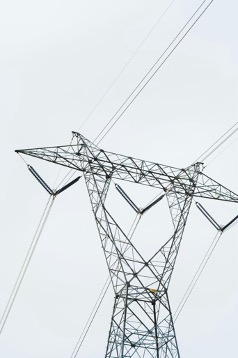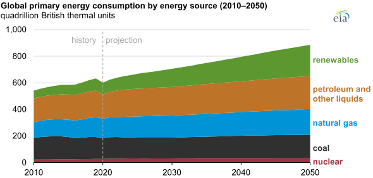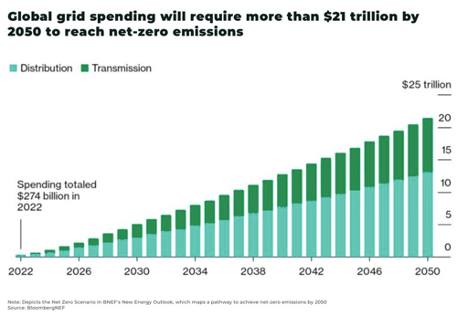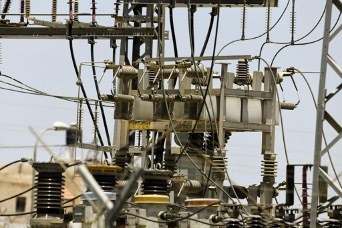AI Agents to Accelerate the Energy Transition: Josh Wong, CEO of ThinkLabsAI on His Vision for Autonomous Grid Management
We had the pleasure of sitting down with Josh Wong, the Founder and CEO of ThinkLabs AI (ThinkLabs). Uniquely positioned with his rich experience at the intersection of power systems engineering, AI, and cloud computing, Josh is leading ThinkLabs’ grand vision to fundamentally revolutionize the energy sector through AI-driven solutions.
ThinkLabs’ Origin Story
Growing up in Canada and frequently traveling to the United States, Josh was always fascinated with energy. He remembers being puzzled by the scarcity of solar panels in North America, which sparked his curiosity and led him to pursue a power engineering degree. He started his career as a Smart Grid Engineering Lead at Toronto Hydro, where he worked on first-of-a-kind smart grid-community battery storage solutions, microgrids, sensors, smart metering, and data analytics. In 2011, Josh founded Opus One Solutions, a company that quickly became a leader in grid Distributed Energy Resources Management Systems (DERMS). Opus One was later acquired by GE, where Josh became part of the energy team and helped the company define the grid of the future. ThinkLabs was incubated within GE Vernova (a spinout of GE; now a public company providing electrical power systems) ) and subsequently spun ThinkLabs out of GE Vernova, with a mission to bring greater autonomy to the power grid using AI.
ThinkLabs’ Solution
ThinkLabs addresses a critical issue in the energy sector: the need for reliable, clean, and affordable energy with speed and scale. The electric grid, an analog and complex 130-year-old interconnected system of physical infrastructure, requires significant modernization to support the electrification necessary for decarbonization and to meet our near-term energy demands.
ThinkLabs envisions an AI-driven approach to grid management, akin to the autopilot systems used in autonomous driving and aviation. By leveraging what Josh calls “physics- or engineering-informed AI”, ThinkLabs makes processes like dynamic planning and grid orchestration more automated, accurate, and instantaneous. “We can leverage the trustworthiness of engineering, but the speed, scale, and pre-trained readiness of AI. That’s the dream: can we basically cruise control our way through the energy transition?”

Image Credits: Jason Hawke via Unsplash
Why Now?
The urgency for grid modernization cannot be overstated. “The next 10 years will write the history books on how the grid evolves over the next half century,” asserts Josh. Utilities, traditionally slow to innovate, are now facing immense pressure to adapt given a proliferation of extreme weather events, workforce shortages, and increasing demand for electricity amidst nationwide decarbonization targets and federal regulation. Utilities are also increasingly seeing the value in transitioning from legacy systems to more advanced, data-driven approaches. The ability to integrate vast amounts of data and utilize AI for real-time and predictive analytics and optimization is unlocking capabilities previously not available. “Right now, there is a lot of industry education required when engaging with utilities. But once they see it, they understand it,” Josh says.

Image Credits: US Energy Information Administration

Image Credits: BloombergNEF
How ThinkLabs Leverages AI
ThinkLabs leverages physics- or engineering-informed AI, a concept that integrates traditional power systems engineering with AI applications. “Our focus is engineering-based systems, and when we think about those mission-critical systems, we all go back to the textbooks we studied back in school. So how do we bring the textbooks from the traditional world of mathematics, physics, and engineering to AI? The best way is to teach AI how to do physics,” explains Josh.
This approach involves training AI models with large amounts of data to become a surrogate model for real-world physics. Another key benefit of using AI to do engineering is that feedback loops exist, whereby processes like model validation and optimization become increasingly accurate the more data the AI ingests.
ThinkLabs’ technology enables utilities to make the grid more efficient, reliable, and resilient: “In the world of engineering, we also do scenario analysis – assume three scenarios, crunch your numbers, pick the one in the middle. But AI allows us to run thousands and millions of scenarios, so when the time comes, the model is pre-trained: if you have too much solar, it knows exactly what to do. If there are too many electric vehicles charging at once, it knows exactly what to do. It’s instantaneous.”

Image Credits: Shraga Kopstein via Unsplash
Josh’s Advice for Aspiring AI Entrepreneurs
When asked for advice for those looking to start an AI company, Josh offers a thoughtful perspective: “I would say focus on use cases. I think too many people jump into this space because of the AI bandwagon, but really at the end of the day, what matters is what type of business value you drive and how you can do things 10x better.”
Josh emphasizes the importance of a deep understanding of the fundamentals, whether on the engineering or AI side. He advises, “So not just – ‘here’s the data set, apply AI and see what you get’. Dig one level deeper and apply first principles – that can really help differentiate yourself from others.”
To sign up for updates on ThinkLabs’ progress, open roles, and for more information on their mission, visit https://www.thinklabs.ai/.